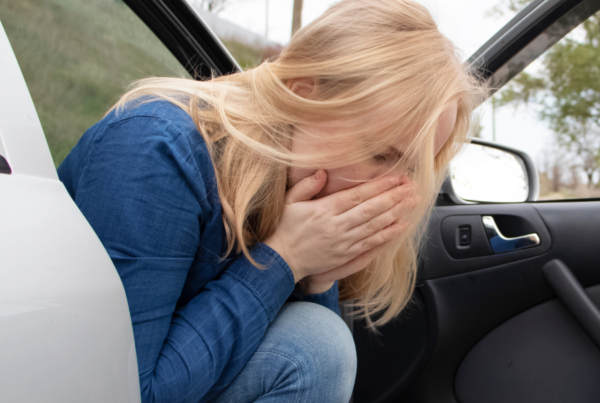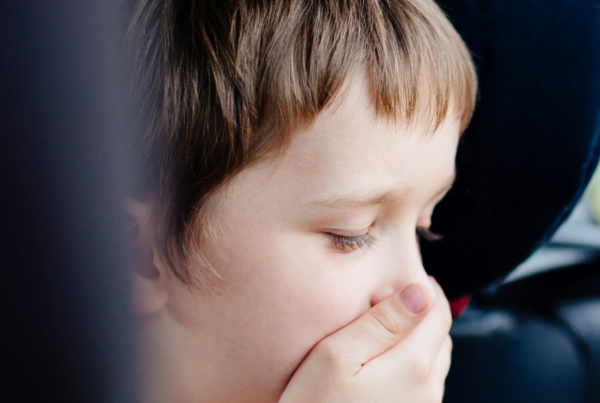

When you’re driving with your baby in the car, you already have several things to worry about, including making sure they are strapped into a car seat correctly and if he or she is comfortable and entertained. But have you ever asked yourself if your baby might be prone to car sickness?
Car sickness is a type of motion sickness. Motion sickness occurs when the brain receives conflicting information from the eyes, inner ears, joints, and nerves. Young children, because of where they are seated in the back, often can’t see where the car (or train or bus) is headed, meaning their inner ear will sense motion but their eyes won’t see the same thing they are feeling. This can result in an upset stomach, loss of appetite, vomiting, cold sweat, and fatigue.
Children under two years old rarely get motion sickness (although it’s quite common in children between two and 12 years old). However, if your baby is often unhappy while travelling, and then feels fine when you get to your destination, it’s possible that baby motion sickness is the cause.
Here are some signs to look out for.
Does my child have a tummy ache?
Travel sickness often starts with a tummy ache. If your child suddenly appears to be uncomfortable or upset or even vomit, this might be the reason.
Are they dribbling or do they have more saliva than usual?
Nausea can cause your body to produce more saliva, so your child might start dribbling more than usual.
Do they look pale?
If your baby looks pale but feels hot, this is another sign—especially if he also gets sick.
Are they increasingly fussy when you drive?
Some children just don’t like car seats, but others are fine in the car, except when the trip gets windy or long. Pay attention to see if your child sets a pattern for increased fussiness in the car particularly with lots of turns. Some children can be so sensitive to motion sickness that they get sick when traveling more than 15 minutes in a vehicle.
Windy roads and strong smells may trigger baby travel sickness. If your baby is moving his head a lot and looking at an object close-up, such as his car seat or mobile, this can make him feel worse.
Remember to pay attention to whether your child has a tummy ache, is dribbling more than usual, looks pale but feels hot, and, of course, if your child vomits. Fortunately, there are ways to prevent and ease baby motion sickness. Learn more about Motioneaze is safe for children and is all-natural!



